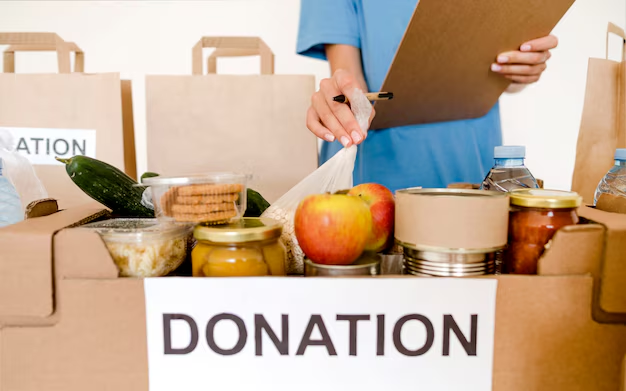Can Homeless Individuals Access Food Stamps? Your Comprehensive Guide
Across many communities, homelessness remains a pressing challenge, where food insecurity often accompanies the absence of a stable living environment. Amid these difficulties, a common question arises: Can homeless individuals access food stamps? This inquiry is vital for understanding how public assistance programs function and their ability to meet the needs of vulnerable populations. In this guide, we explore the relationship between homelessness and food stamps, demystify the application process, and provide insights into practical improvements being made to enhance access.
Understanding Food Stamps and the SNAP Program
What is SNAP?
The Supplemental Nutrition Assistance Program (SNAP), commonly known as food stamps, is a federal assistance initiative designed to help low-income individuals and families purchase food. This program is crucial in providing nutritional support and is administered at the state level with federal guidelines.
Importance of SNAP for Homeless Individuals
Homeless individuals often experience severe food insecurity due to inconsistent access to meals. SNAP plays a pivotal role in alleviating hunger by enabling eligible participants to purchase food from authorized retailers. For homeless people, being able to buy prepared meals at specific locations can significantly ease their hardship.
Can Homeless People Qualify for Food Stamps?
Eligibility Criteria for SNAP
Income Requirements: To qualify for SNAP, applicants must meet certain income thresholds that vary by household size and composition.
Residency Status: Applicants must reside in the state where they apply for benefits. Importantly, they do not need a permanent address, making it feasible for homeless individuals to qualify.
Citizenship Status: Eligible individuals must be U.S. citizens or have qualified non-citizen status.
Other Considerations: Various factors, such as employment status or disability, can influence an individual's eligibility.
Special Provisions for Homeless Applicants
Homeless applicants are often given special consideration under SNAP. Specifically, the absence of a permanent address is not a disqualifying factor. Application procedures can sometimes be streamlined, recognizing the unique impediments faced by those without stable housing.
How to Apply for SNAP Benefits
The Application Process
Applying for SNAP generally involves the following steps, each carefully designed to accommodate different living situations:
- Form Submission: Individuals can submit applications online, by mail, or in person at local SNAP offices.
- Verification: Applicants may need to provide documentation to verify income, identity, and residency status. Homeless individuals can utilize alternative forms of documentation, such as a letter from a shelter.
- Interview: An interview, often via phone, is typically conducted to clarify any uncertainties in the application.
Tips for Homeless Applicants
Leverage Community Resources: Many shelters and support organizations have experience in guiding applicants through the SNAP process.
Utilize Advocacy Services: Some nonprofit organizations offer advocacy services that can help navigate the bureaucratic process.
Stay Informed: Local SNAP offices frequently hold information sessions where applicants can learn about their rights and the nuances of applying without a permanent residence.
Practical Benefits and Challenges
Advantages of SNAP for Homeless Individuals
- Improved Food Security: Direct access to food resources significantly reduces daily survival stresses.
- Flexibility in Food Choices: SNAP benefits allow recipients to purchase food that suits their dietary needs and preferences.
- Enhanced Dignity: This program offers a degree of financial independence, contributing to improved self-esteem.
Challenges in SNAP Accessibility
- Complex Application Process: Despite efforts to simplify it, the application process can still pose obstacles without adequate support.
- Misconceptions and Stigma: Cultural stigma around public assistance and misconceptions about eligibility can deter individuals from applying.
Innovations and Improvements
Policy Enhancements
Various initiatives across states aim to improve the SNAP experience for homeless individuals. Programs like expedited processing and broader acceptance of application forms help minimize barriers.
Collaboration with Local Organizations
In collaboration with shelters and social services, state agencies are working to ensure a smoother application process and more comprehensive support for homeless applicants.
Technology Enhancements
Some areas are piloting programs that utilize technology to facilitate access to SNAP benefits, such as mobile application systems and virtual cards, making food purchases more convenient.
Key Takeaways 📝
- Eligibility Flexibility: Homeless individuals can apply for SNAP even without a permanent address.
- Empowered Assistance: Community resources and nonprofit organizations can significantly aid in navigating the application process.
- Ongoing Improvements: State and federal policies are progressively adapting to reduce barriers and improve access to SNAP benefits.
By supporting access to essential nutritional resources, SNAP helps to address the immediate food needs of homeless individuals while providing broader opportunities for them to regain stability and improve their quality of life.
Moving Forward
From policy changes to local community advocacy, the journey to maximize the impact of SNAP for homeless populations is ongoing. By addressing both logistical hurdles and societal perceptions, there’s potential to significantly enhance the effectiveness of food assistance programs, ensuring that everyone, regardless of their housing situation, has the opportunity for nourishment and support.

Related Topics
- Am I Eligible For Food Stamps
- Are Food Stamps Being Cut
- Are Food Stamps Federal Or State
- Are Food Stamps Frozen
- Are Food Stamps Funded By Taxpayers
- Are Food Stamps Going Away
- Are Food Stamps Income Limits
- Are Food Stamps Paused
- Are Illegal Aliens Eligible For Food Stamps
- Are Illegal Immigrants Eligible For Food Stamps
